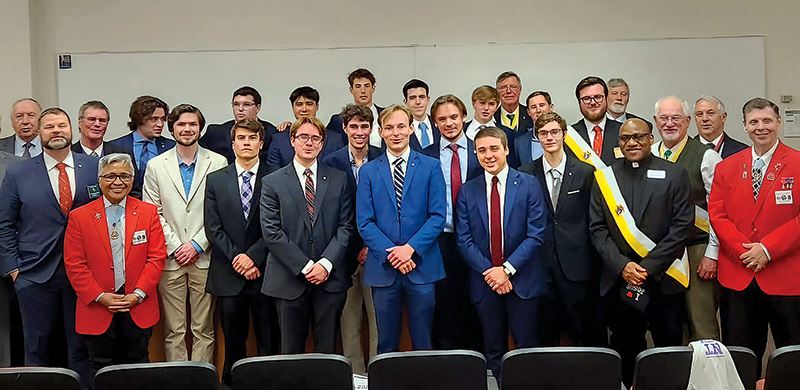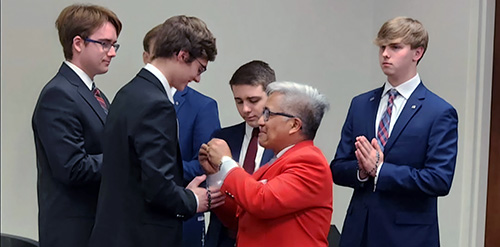 HIGH POINT — Fifteen High Point University students were recently inducted into the Knights of Columbus in conjunction with plans to establish a collegiate branch of the Catholic fraternal organization on campus.
HIGH POINT — Fifteen High Point University students were recently inducted into the Knights of Columbus in conjunction with plans to establish a collegiate branch of the Catholic fraternal organization on campus.
The March 16 ceremony, called an exemplification, was organized under the leadership of Father Marcel Amadi, Catholic chaplain at High Point University and associate state chaplain for the North Carolina Knights of Columbus.
He was joined by North Carolina State Deputy Sergio Miranda, State Secretary Rick Lewis, Regional District Deputy Denis Carter, District Deputy Ed Christian and Chris Moore, director of college operations for the Knights of Columbus Supreme Council.
State officials cheered the historic ceremony – the first to be held at the university and one of the largest groups of college students to be inducted simultaneously in North Carolina.
“They are on fire, and it’s so great to see young men in the times in which we live who love the Lord!” Christian said.
The students inducted were Benjamin Atkinson, Connor Bain, Eric Brockman, William Crayle, Grant Danahey, Michael Galla, Jack Keenan, Caleb Knox, William Laguna, K. Larkin, Cole Myers, John Silk, Garrett Sledge, Jack Slowik and Bowden Spring.
These students will join a local Knights of Columbus council. Plans are underway to form an official college council on the HPU campus, a significant development in the growth of the order among younger Catholics.
Founded in 1882, the Knights of Columbus is the world’s largest Catholic fraternal organization with more than 2 million members globally. Open to Catholic men 18 and over, the Knights are dedicated to charity, unity, fraternity and patriotism, serving their faith communities through service, leadership and spiritual growth.
— Christina Lee Knauss


